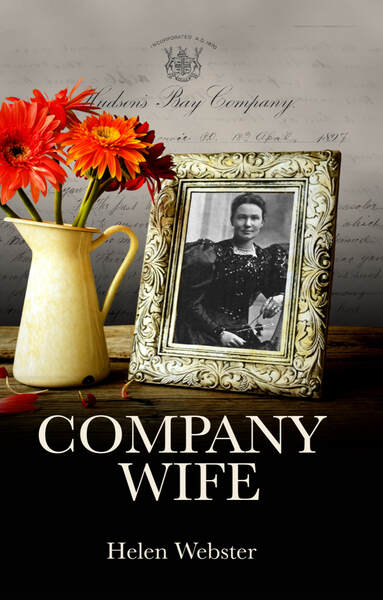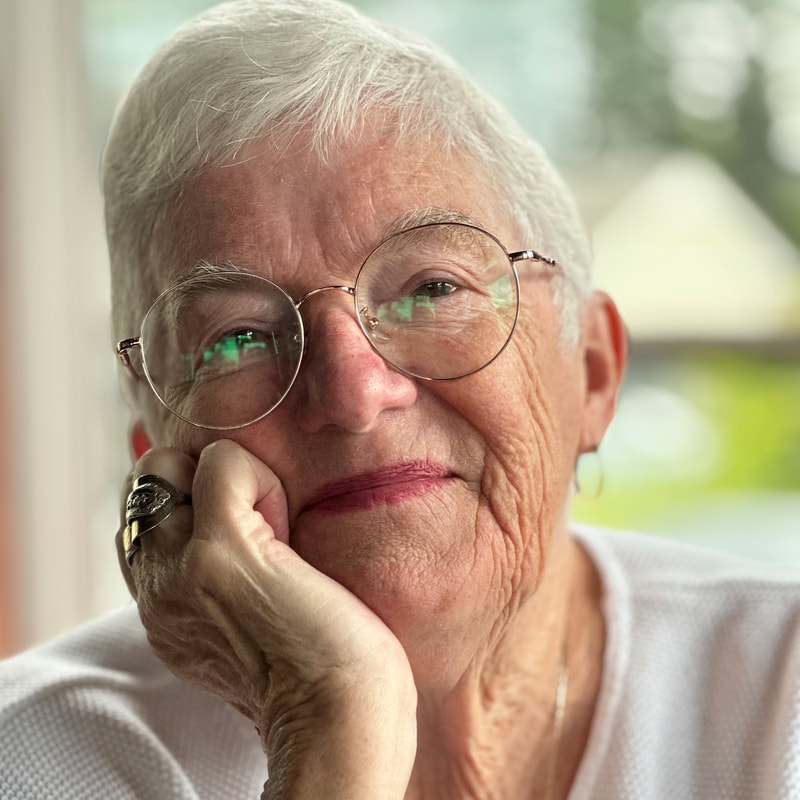|
Softcover
Black & White 366 pages 5.5 x 8.5 inches |
Ten years and ten children in 19th-century Canadian wilderness. How did she survive?
COMPANY WIFE Book I of Helen's Canadian Historical Trilogy There are many volumes devoted to the stories of the men of the Hudson’s Bay Company, whose courage and stamina established the HBC in North America as one of the most significant corporations of the past four hundred years. Less attention has been paid to the stories of the women who accompanied them into the Canadian wilderness. COMPANY WIFE brings to life the story of one of these wives. Maggie McLeod Ross McKenzie’s bravery and endurance in the face of extreme hardship, isolation in the wilderness of northern Ontario in the late 1800s and escalating domestic violence is in itself a tale of indomitable strength. Born in the Saguenay region of Quebec in 1850, Maggie married a young HBC trader named Thomas Barnston Ross in 1867 and ten years later travelled with him and their five children, the oldest nine, the youngest three months, to a lonely HBC post on Whitefish Lake, 150 miles north of Lake Huron. Maggie lived in that wilderness for almost two decades, bearing five more children there. She raised and educated her ten children in that lonely cabin. The caring and enormous strength of character of their mother is evident in the successful lives lived by her children. Four of them grew up to become doctors, several were successful businessmen, and one became an athlete of great renown. At the close of the 19th century, the family returned to the Saguenay when TB was given the position of Jr Chief Trader at Roberval, in the Lac St Jean region. In a final twist of fate in the extraordinary life of this remarkable woman, Maggie McLeod Ross, by this time fearing for her life, left TB and fled to Sudbury with her children. Within two years, she obtained a divorce and married Peter McKenzie, a Chief Factor of the HBC, moving to Montreal with her younger children. There, she lived the life of a society matron until Peter’s death in 1910. Book 1 Company Wife | Book 2 Trader's Son | Book 3 Medical Man
|
Watch virtual author talk below:
|
Part 1
|
Part 2
|
Reviews
“...If you appreciate strong women and are interested in vivid tales of frontier life in Canada, Company Wife is a must read...” - Marg Smith
“...a major contribution to Canadian culture and literature...a story of an icon, a hero, Maggie is our Canadian history...” - Frank Tierney
“...This is a compelling story. It needs to be heard. I got so much out of reading it...” -Olive Cossar
Excerpt
The tents shuddered as the wind and rain stormed into the camp shortly after midnight … by four o’clock in the morning the worst of the winds had subsided and the pounding rain had lessened to a steady drizzle so the decision was made to embark again in the canoes, huddled under the tarpaulins that had been used for tents and windbreak. Shortly after they set out, the wind grew stronger and stronger and the Ojibwe paddlers had to fight to keep the canoes from turning broadside and capsizing.
Marguerite held the baby close and prayed, terrified at the thought of her children or herself being thrown into the angry water churning around them … at first the older boys had found the surging waves exciting, but as the water seemed to be throwing itself into the canoes and the wind and rain drove needles of spray into their faces and soaked their clothing, excitement turned to misery.
Their mother could feel her anger growing with her fears for herself and her children. “How could Thomas do this to us? Surely his ambitions should not have put his family in such danger … nothing is worth this dreadful journey.”
And she was angry at herself. She should have refused to come on this horrendous expedition. It would have meant a scandal if she had left her husband and remained in Quebec, but, mon Dieu, it would have been better than the situation in which she and her children now found themselves.
Marguerite held the baby close and prayed, terrified at the thought of her children or herself being thrown into the angry water churning around them … at first the older boys had found the surging waves exciting, but as the water seemed to be throwing itself into the canoes and the wind and rain drove needles of spray into their faces and soaked their clothing, excitement turned to misery.
Their mother could feel her anger growing with her fears for herself and her children. “How could Thomas do this to us? Surely his ambitions should not have put his family in such danger … nothing is worth this dreadful journey.”
And she was angry at herself. She should have refused to come on this horrendous expedition. It would have meant a scandal if she had left her husband and remained in Quebec, but, mon Dieu, it would have been better than the situation in which she and her children now found themselves.

